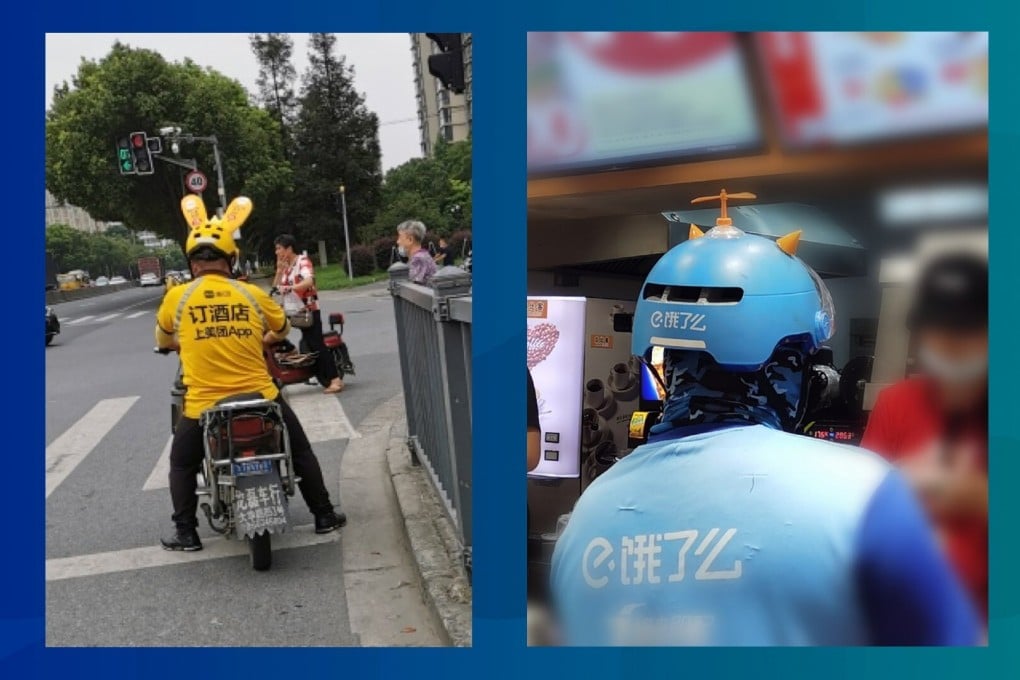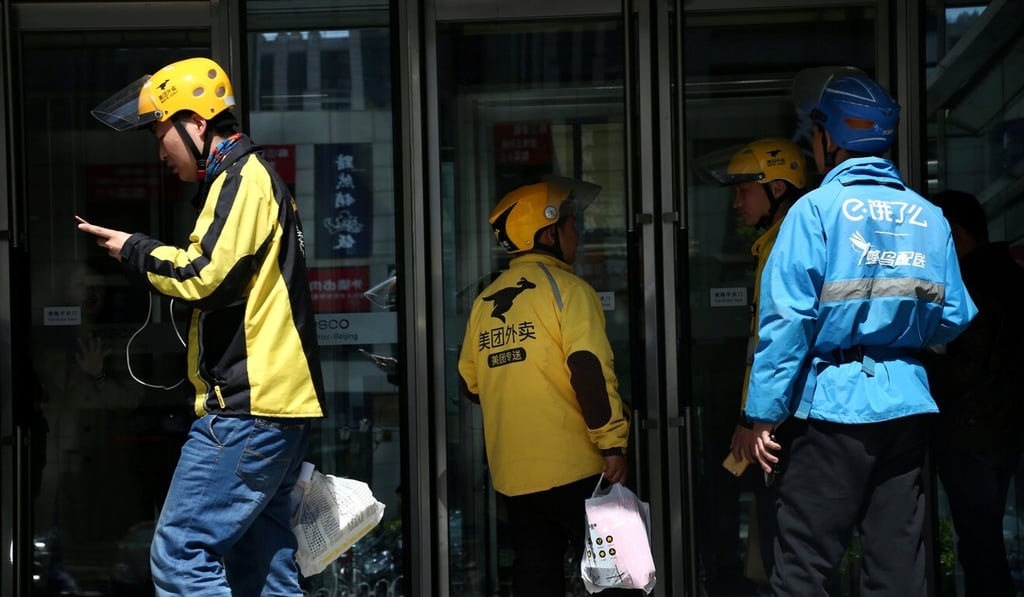Meituan and Ele.me battle for attention on the streets of China with kangaroo ears and toy rotors on driver’s helmets
- Meituan Dianping and Alibaba’s Ele.me are trying recover from a drop in orders during the Covid-19 lockdown
- The battle for eyeballs has caught the attention of social media users

For the past few years, the food delivery battle in China has been represented by two colours: yellow for Meituan Dianping and blue for Alibaba-owned Ele.me. On any given day in Shanghai or Beijing, drivers from rival brands can be seen wearing uniforms consisting mostly of their respective employer’s colours while roaming the streets on scooters painted in the same hue.
(Alibaba is the owner of the South China Morning Post.)
Recently, though, a new image contest has emerged – and this time it’s focused on the head.
Chinese social media users have been sharing photos of delivery drivers sporting eye-catching headgear.
Workers from Meituan can be seen wearing a pair of kangaroo ears on their helmets, representing the leaping marsupial that is the company logo. Ele.me riders, meanwhile, have been spotted donning what’s known as a bamboo-copter: a toy propeller best known for its appearance in the classic Japanese anime series Doraemon.

“Saw this on the road just now, pretty cute,” one Weibo user wrote alongside shots of a Meituan delivery driver.